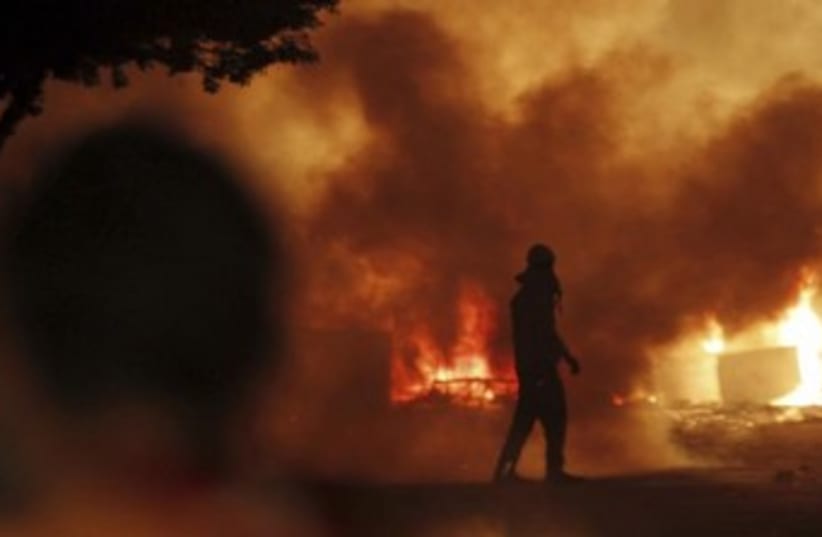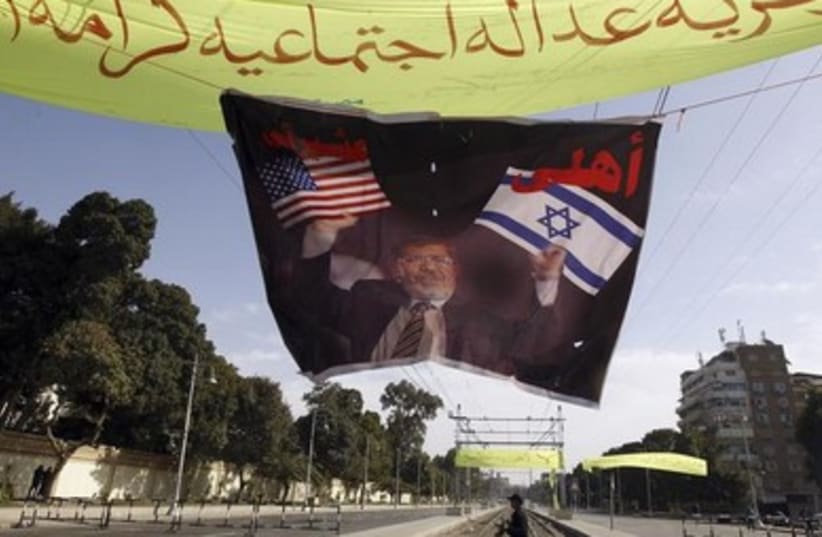
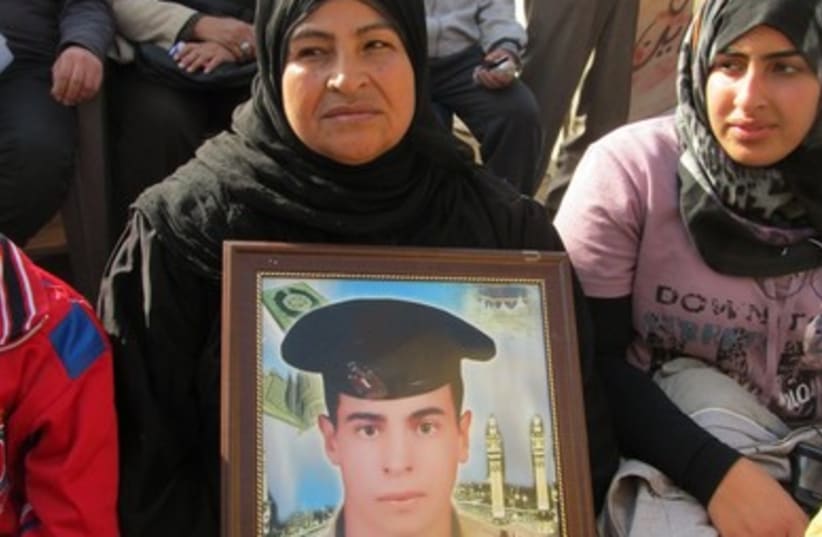
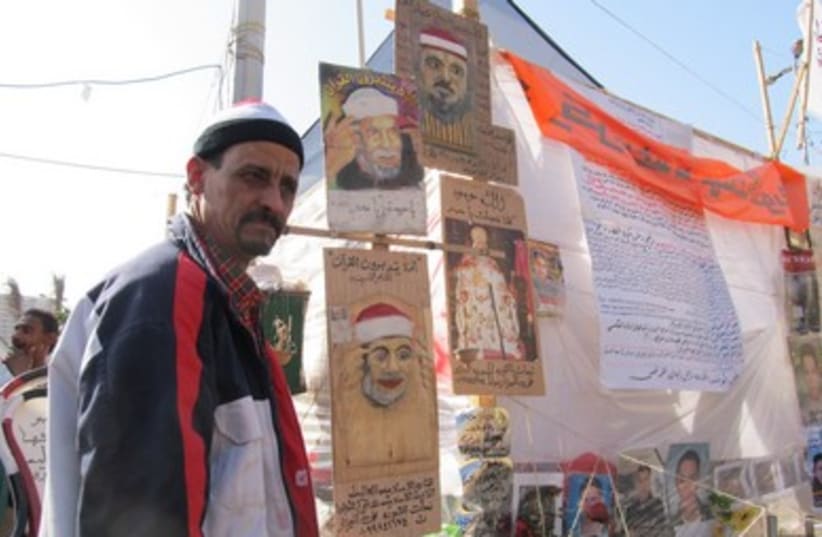
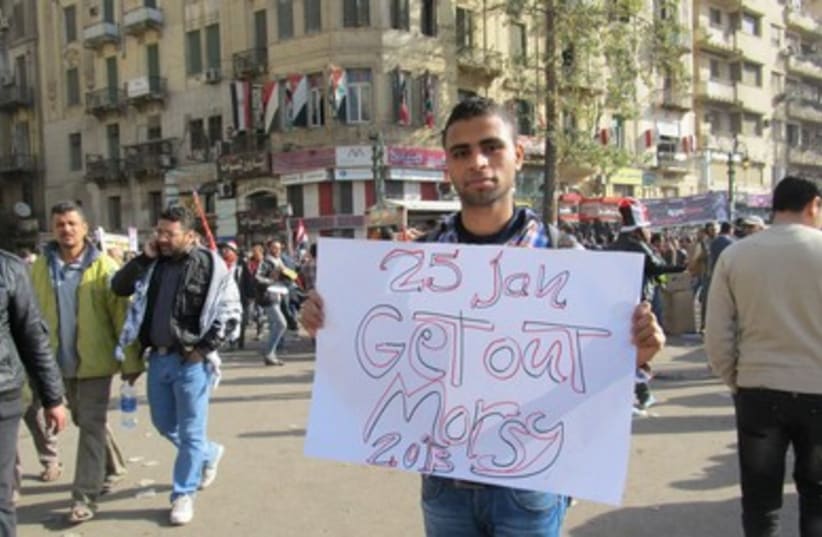
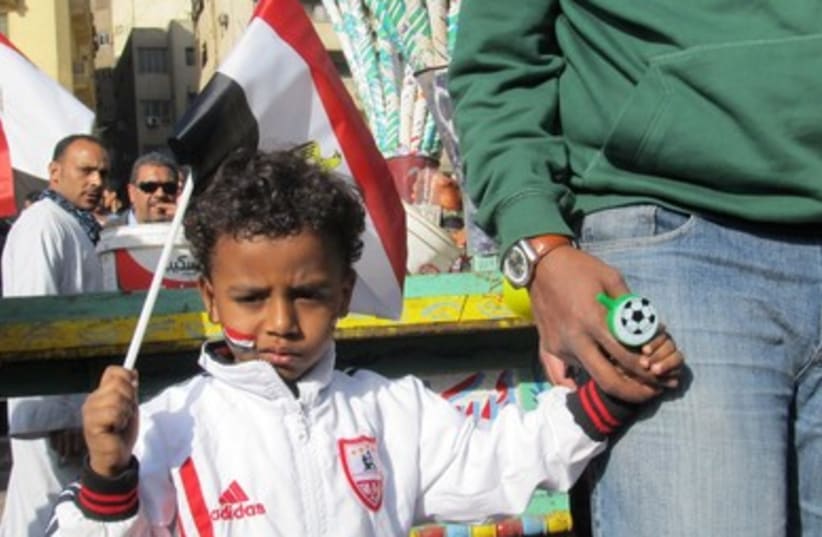
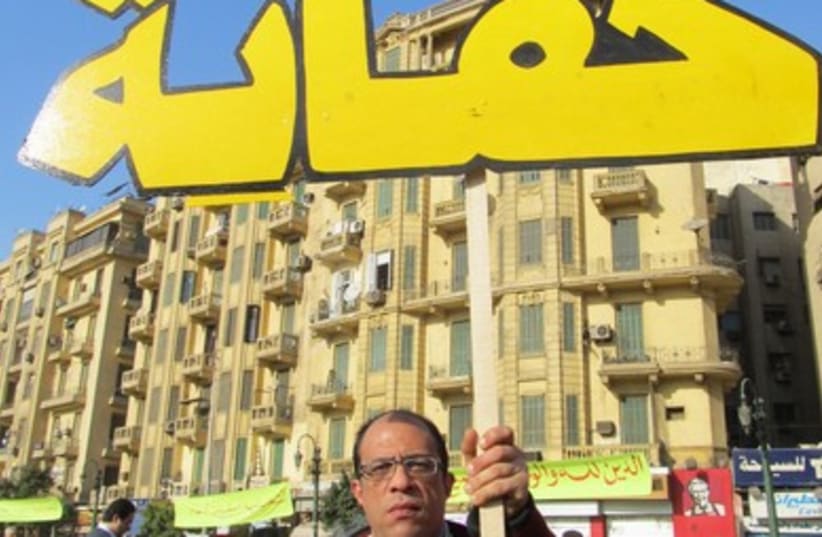
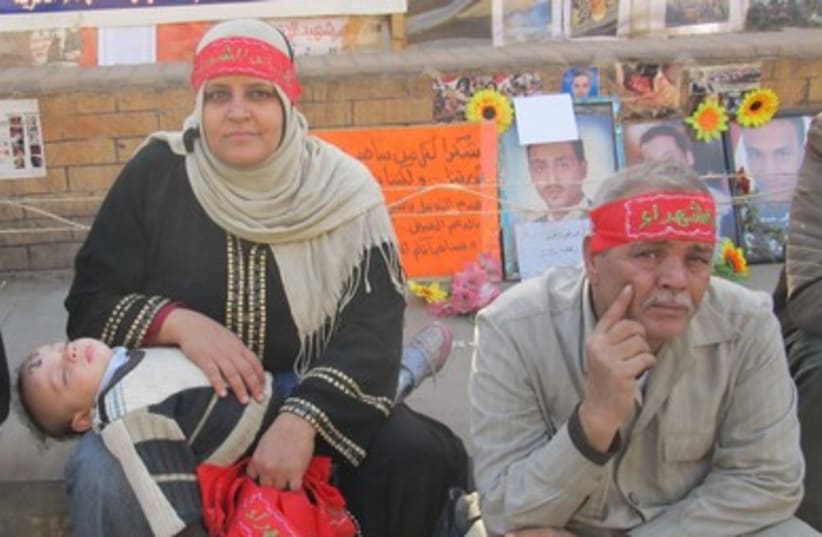
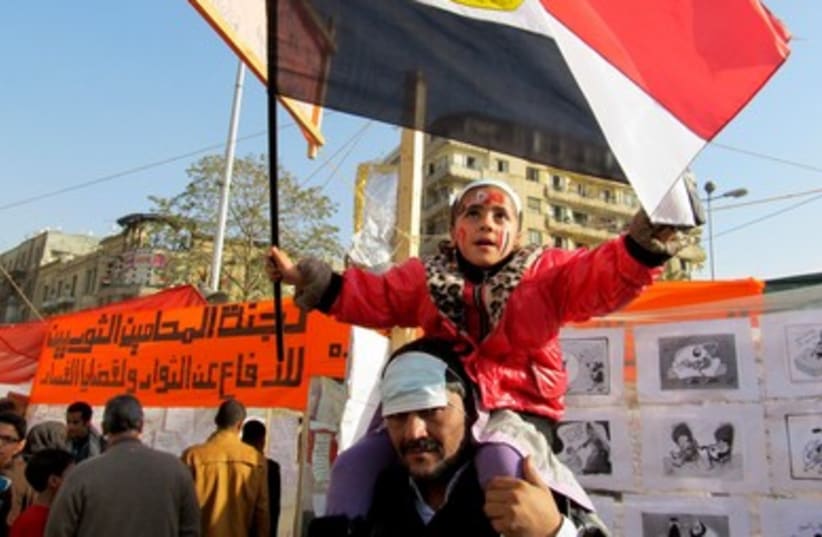
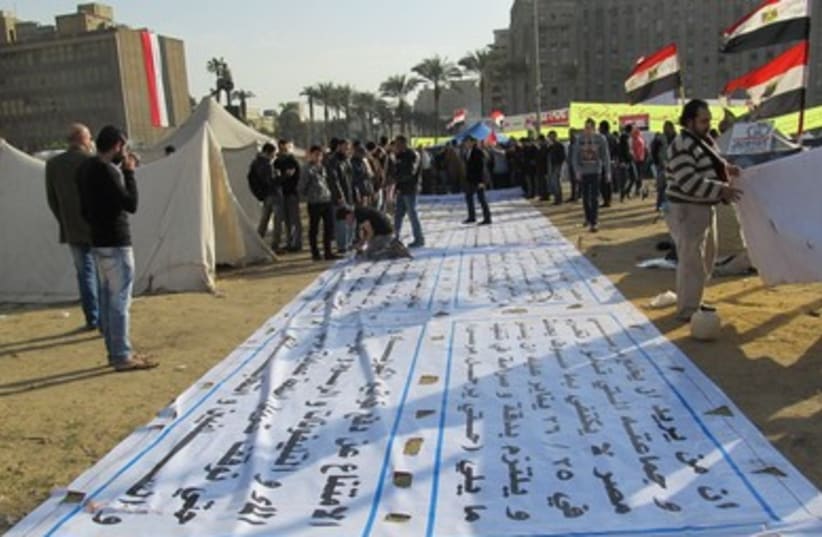
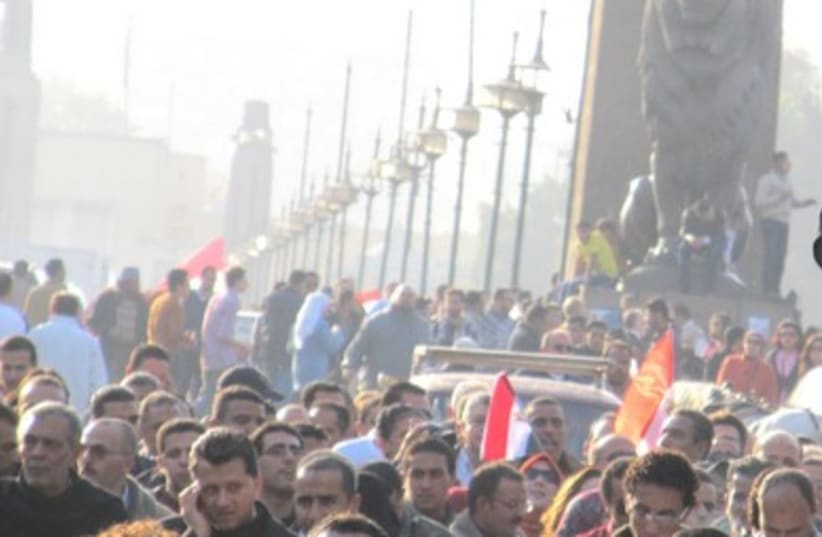
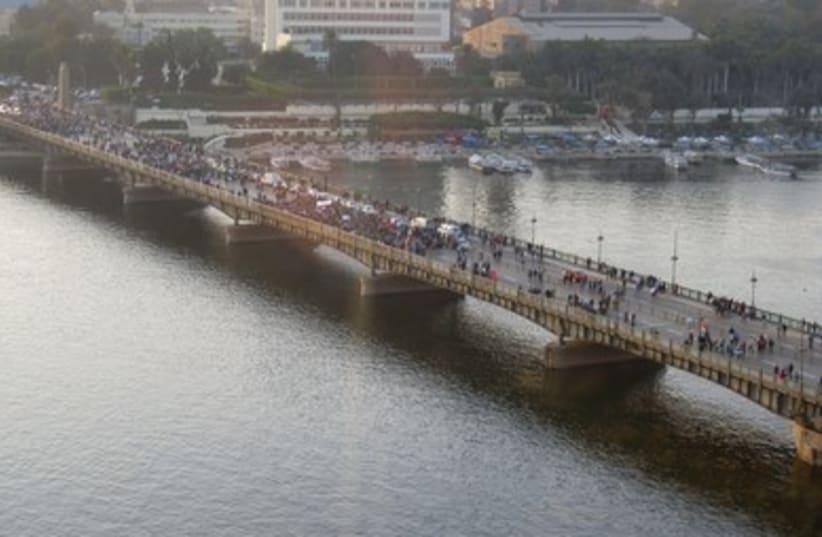
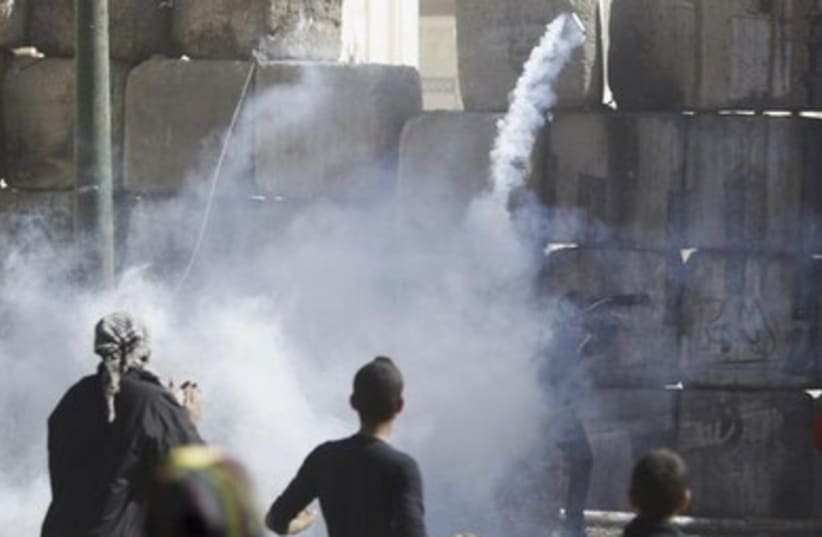
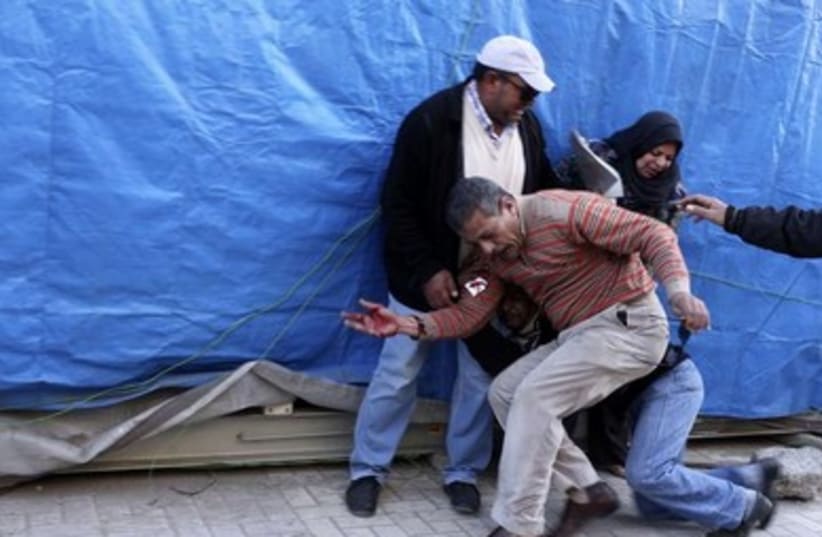
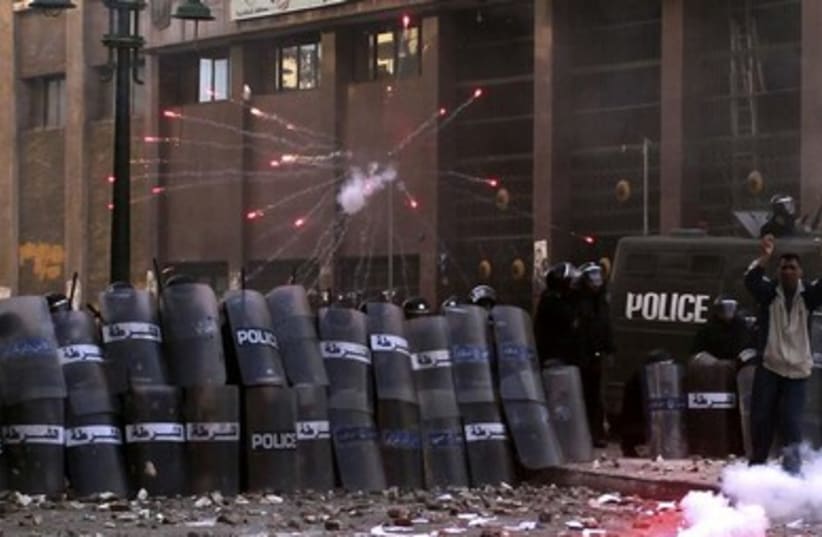
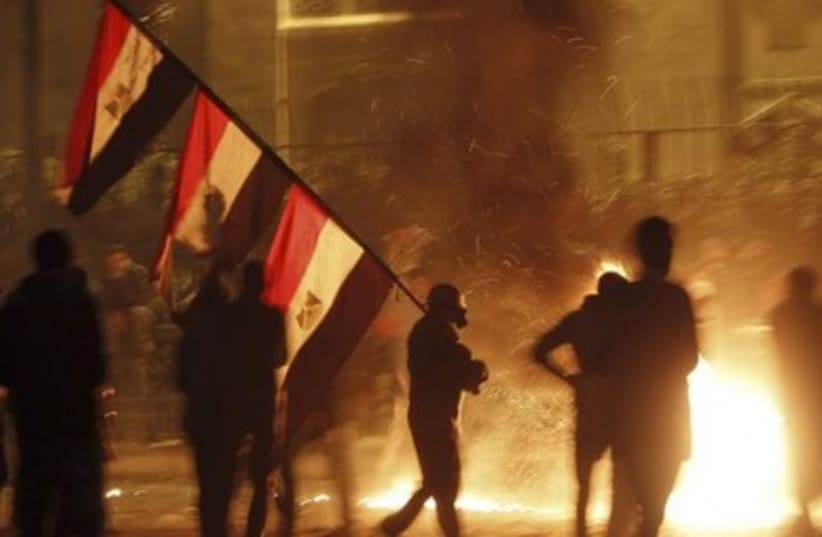

Egypt's armed forces deployed troops in the city of Suez early on Saturday after nine people were shot dead during nationwide protests against President Mohamed Morsi.Eight of the dead, including a policeman, were shot dead in Suez, and another was shot and killed in the city of Ismailia, medics said. Another 456 people were injured across Egypt, officials said, in unrest on Friday fueled by anger at Morsi and his Islamist allies over what the protesters see as their betrayal of the revolution.Morsi said the state would not hesitate in "pursuing the criminals and delivering them to justice". In a statement, he also called on Egyptians to respect the principles of the revolution by expressing their views peacefully.The troops were deployed in Suez after the head of the state security police in the city asked for reinforcements. The army distributed pamphlets to residents assuring them the deployment was temporary and meant to secure the city."We have asked the armed forces to send reinforcements on the ground until we pass this difficult period," Adel Refaat, head of state security in Suez, told state television.Street battles erupted in Cairo, Alexandria, Suez and Port Said.Arsonists attacked at least two state-owned buildings as symbols of government were targeted. An office used by the Muslim Brotherhood's political party was also torched.The protests were an attempt to reignite the passionate demonstrations that toppled President Hosni Mubarak after 18 days in 2011 and channel the anger towards Morsi.Protesters echoed the chants of 2011's historic 18-day uprising. "The people want to bring down the regime," they chanted. "Leave! Leave! Leave!" chanted others as they marched towards the square.“This is in solidarity with the people of Egypt who staged one of the most glorious revolutions in history and are determined to get it back,” Saad Eddin Ibrahim, a prisoner of the Mubarak regime and Egypt’s leading human rights activist, told The Jerusalem Post as he walked towards Tahrir. “The crowd today speaks loud and clear to Morsi and the Muslim Brotherhood, putting them on notice to be alert and vigilant that we won’t allow despotism to be erected again.”Throughout the afternoon, marches that began in every corner of Cairo streamed towards Tahrir Square. As with many of the protests two years ago, demonstrators came from all classes – upper-class women drinking coffee while lounging on plastic chairs, hardened homeless people sleeping in ratty blankets in the corners, children weaving through their parents legs and vendors hawking commemorative January 25 t-shirts.As night fell, the diverse crowd was replaced by a more hardened group, including the “Ultras,” soccer hooligans who are known for instigating violence. Recently, some ultras have started wearing black sweatshirts and black balaclava face masks with an insignia of the Ahly soccer team, in an effort to avoid identification by the police. On Saturday, an Egyptian court sentenced to death 21 people accused of involvement in the Port Said soccer stadium disaster in which 74 people were killed last year, the judge said. The ruling was meant to reduce the prospects of fresh clashes onEgypt's turbulent streets. However, a policeman was shot dead outside a prison in Port Said Saturday after protesters gathered at the site where many of the defendants in the fatal soccer case were held, a security source reported.Police fired tear gas to disperse a few dozen protesters trying to remove barbed-wire barriers protecting the presidential palace, witnesses said. A few masked men got as far as the gates before they were beaten back.“This show of force is to convince the Muslim Brotherhood they can’t rule as if they are despots,” said Nabil, an activist with the Social Democrats, earlier in the afternoon. He stressed that he had no problem with the formation of the government, just the action that they were taking. “The revolution didn’t achieve those goals to improve life for poor Egyptians and improve the economy, but the biggest achievement of the revolution was a sense of empowerment,” he said.The Muslim Brotherhood vowed not to get involved in Friday’s protests since much of the rage was directed at the party’s ineffectiveness in dealing with Egypt’s deep economic problems.
